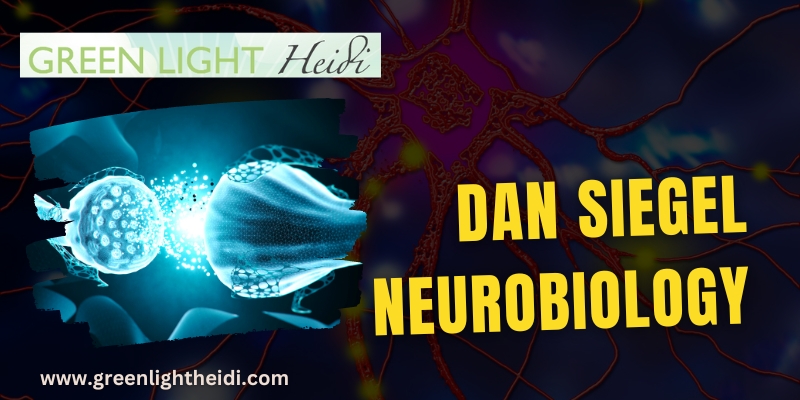Dan Siegel’s Interpersonal Neurobiology for Therapy and Counseling

The field of therapy and counseling is constantly evolving, with new research and theories always emerging. One area that has gained significant attention in recent years is interpersonal neurobiology, which seeks to understand how our relationships with others shape our brain development, emotion regulation, and mental health.
One of the leading experts in this field is Dr. Dan Siegel, a clinical professor of psychiatry at the UCLA School of Medicine and the author of several bestselling books on the topic. In this blog post, we’ll explore the impact of Dan Siegel interpersonal neurobiology on therapy and counseling and how this approach can help us better understand and treat mental health issues.
Introduction to Interpersonal Neurobiology:
Interpersonal neurobiology is a relatively new field of study that seeks to understand how the relationships we have with others shape our brain development, behavior, and mental health. This approach emphasizes the importance of social connections, emotions, and the regulation of both, in how the brain functions. Dr. Dan Siegel has been a leading figure in this field, and his work has helped to broaden our understanding of how the brain and mind are interconnected.
Understanding the Mind-Body Connection:
One of the key principles of Dan Siegel interpersonal neurobiology is that the mind and body are not separate entities but are closely connected. According to Dr. Siegel, the mind is not just in the brain but a process that emerges from the brain and body activity. By understanding how the mind-body connection works, therapists and counselors can better help clients regulate their emotions, manage stress, and improve overall well-being.
The Importance of Attachment in Therapy:
Another key aspect of Dan Siegel neurobiology is the emphasis on the importance of attachment in therapy. Attachment is the emotional bond between an individual and their caretaker, and it plays a crucial role in the development of the brain and the regulation of emotions. Siegel argues that understanding a client’s attachment history can help therapists and counselors understand how to treat mental health issues best and improve therapeutic outcomes.
Research on daniel siegel the neurobiology of we has shown that when we have close relationships with others, our brains release hormones, such as oxytocin, that can help reduce stress, improve our mood, and influence our behavior. However, he has also found that when we are in unhealthy or strained relationships, our brains release different hormones, such as cortisol, which can harm our mental and physical health.
The Role of Emotion Regulation in Counseling:
Emotion regulation is the ability to manage and control one’s emotions. Dr. Siegel’s interpersonal neurobiology strongly emphasizes the role of emotions in mental health and how the ability to regulate emotions plays a crucial role in overall well-being. By using techniques like mindfulness, self-reflection, and compassion, therapists and counselors can help clients control their emotions and improve their mental health.
Mindsight and Self-Reflection in Healing:
Dan Siegel neurobiology also focuses on the concept of “mindsight,” which he defines as the ability to see into the inner workings of one’s mind. It can include understanding one’s thoughts, feelings, and behaviors, as well as reflecting on the past and planning for the future. By fostering mindsight and self-reflection, therapists and counselors can help clients gain insight into their thoughts and behaviors and promote healing.
Using Interpersonal Neurobiology in Group Therapy:
Dan Siegel interpersonal neurobiology can also be applied in group therapy. By understanding the social connections and relationships within a group, therapists can better understand how to facilitate healing, trust, and emotional regulation in the group. Group therapy informed by interpersonal neurobiology can be particularly effective for conditions such as PTSD, eating disorders, and addiction, where relationships and emotions play a significant role.
How Interpersonal Neurobiology Can Enhance the Therapeutic Relationship:
Interpersonal neurobiology emphasizes the importance of the relationship between therapist and client. By understanding how the brain processes social connections and emotions, therapists can create a more effective and empathetic therapeutic relationship. By focusing on attachment and regulating emotions, therapists can help clients feel more secure and comfortable, leading to better therapeutic outcomes.
Future Directions in Interpersonal Neurobiology and Therapy:
Interpersonal neurobiology is still a relatively new field of study, and there is still much we need to learn. However, Dr. Siegel’s work and research in this area have already changed how we think about mental health and therapy practice. As the field continues to evolve, we can expect to see more therapists and counselors using interpersonal neurobiology in their approach and more research being conducted to understand better how the brain and mind are connected.
Top 10 Benefits of Integrating INB into meditation practices
- Improves emotional regulation
- Enhances self-awareness
- Develops self-compassion
- Increases understanding of the mind-body connection
- Enhances the ability to understand and interpret experiences
- Deepens understanding of attachment
- Improves relationships
- Promotes overall well-being
- It can help manage specific conditions
- It can be a powerful tool for personal growth
The Bottom Line
Siegel’s interpersonal neurobiology has provided a holistic approach to therapy and counseling by emphasizing the importance of attachment, emotions, and regulation. By applying interpersonal neurobiology, therapists can create more effective, empathetic therapeutic relationships and improve client outcomes. Future research in the field will continue to improve and refine the understanding of the mind-body connection and the integration of this field in therapy and counseling.
Green Light Heidi provides a wide range of courses based on Dan Siegel interpersonal neurobiology approach. So whether you want to deepen your understanding of interpersonal neurobiology, learn new mindfulness and meditation techniques, or improve your relationships, it has a course that can help. Visit https://greenlightheidi.com/ and start your self-awareness journey toward better mental health and overall well-being.

Comments